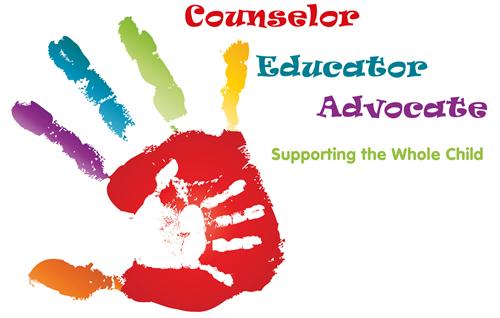BES Counseling Department
The elementary-school counselor, in cooperation with other staff, teachers, parents, and community leaders, becomes a valuable asset to the school community. Important tasks for the counselors include the following:
- Promoting success in school.
- Developing positive attitudes toward self. family, and community.
- Instilling understanding and appreciation of self and others.
- Increasing motivation and confidence for success in school and community activities.
- Teaching decision-making and communication skills.
- Creating an emotionally healthy school learning climate.
- Improving cooperation between school and home.
- Developing career awareness for the future.
- Building tolerance and appreciation of persons of all ethnic and cultural backgrounds.
- Intervening in conflict, crisis, and emergency situations.

SERVICES TO CHILDREN
The counselor provides individual and group counseling services in order to assist children in the following:
- Conflicts with peers
- Teacher-child conflicts
- Rejection
- Friendships
- Grief and loss
- Disasters
- Family conflicts that affect learning
- Separation and divorce problems
- Anger management
- Impulse control
- Setting realistic goals
- Attention and learning deficit
COUNSELORS WORK IN FOUR ESSENTIAL AREAS
1. Personal development - counselors help students to:
- develop positive self-esteem.
- accept responsibility.
- develop attitudes and actions necessary to achieve.
- deal with the effects of abuse.
- cope with the stress that might lead to feelings of isolation, depression, and suicide.
- develop an awareness of the child's unique potential.
2. Social development - counselors help students to:
- develop feelings of adequacy in relation to others.
- learn ways to resolve interpersonal relationships.
- establish sound family relationships.
- establish good peer relationships.
- establish effective working relationships with teachers and administrators.
- develop respect for individual differences in attitude, values, and backgrounds.
3. Educational development -- counselors help students to:
- use learning opportunities in effective ways.
- develop educational plans that relate to their interests, aptitudes, achievements, values, and needs.
- Counselors help identify learning problems/styles for early remediation.
- Counselors affect the school environment by implementing school-wide programs, e.g., anti-gang activities, positive discipline, peer counseling, peer tutoring, career awareness, conflict management, adopt-a-school program, and so forth.
4. Career development -- counselors help students to:
- be aware of career choices and opportunities.
- meet and talk to persons from various careers regarding the 17 Career Clusters.
- discuss educational standards that meet career goals.
SERVICES TO PARENTS
- The counselor confers with parents in order to help children change unwanted behaviors and attitudes.
- The counselor coordinates parent education groups.
- The counselor provides parents with community resources when necessary.
- The counselor empowers parents to become more involved in school and community affairs.
SERVICES TO TEACHERS AND STAFF
- The counselor provides information and resources for classroom guidance activities.
- The counselor confers with teachers and staff to plan jointly for the students' needs.
- The counselor provides in-service and staff development programs on counseling issues such as crisis management, fetal alcohol syndrome, hyperactivity, and behavior modification.
- The counselor offers teachers interventions and strategies that enhance a child's ability to succeed in the learning environment.
SERVICES TO THE COMMUNITY
- The counselor coordinates human services at the school site to ensure that the basic security needs of children are met. Counselors provide information and referrals about community agencies and services.
- The counselor acts as a liaison for community agencies to disseminate information to the school community and to bring additional programs to the school, e.g., youth gang services, mental health services, college intern programs, etc.
SERVICES FOR COUNSELORS
- Counselors are aware of current research and future trends.
- Counselors are aware of the need to find positive outlets for stress and to develop a personal support system.
- Counselors participate in conferences, conventions, meetings, and other modes of networking and gaining expertise.
- Counselors join professional organizations in order to share and gain from other professionals.
CRISIS INTERVENTION
- Counselors deal with personal crises of students and their families.
- Counselors provide emotional support when there is death or violence in the family or community.
- Counselors provide emotional support in child abuse cases.
- Counselors address suicidal ideation and depression in children.
- Counselors serve on school crisis teams and other crisis intervention teams.